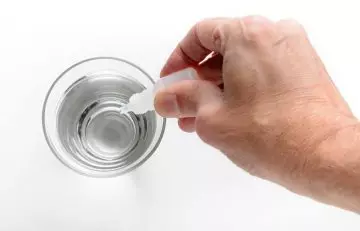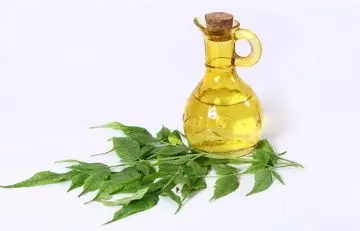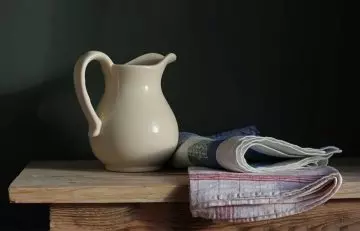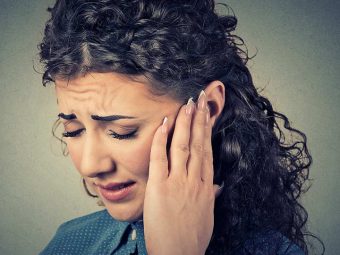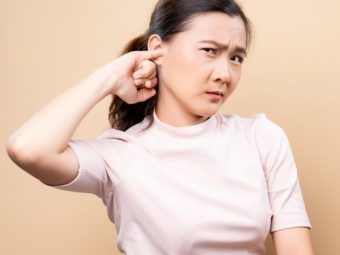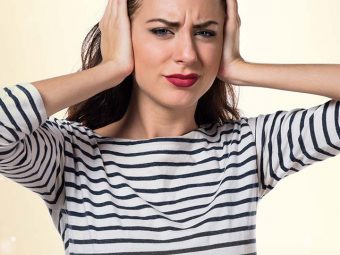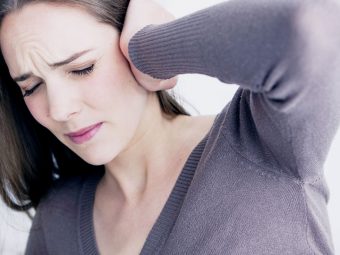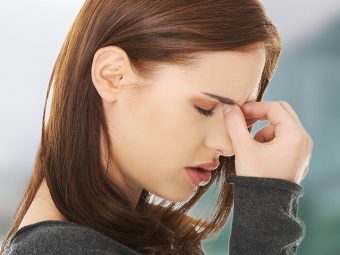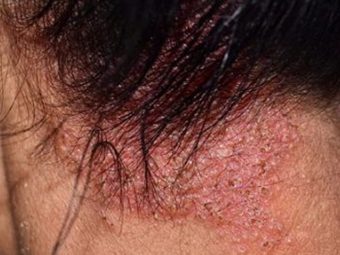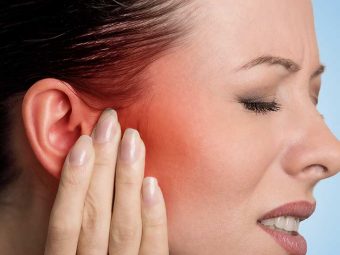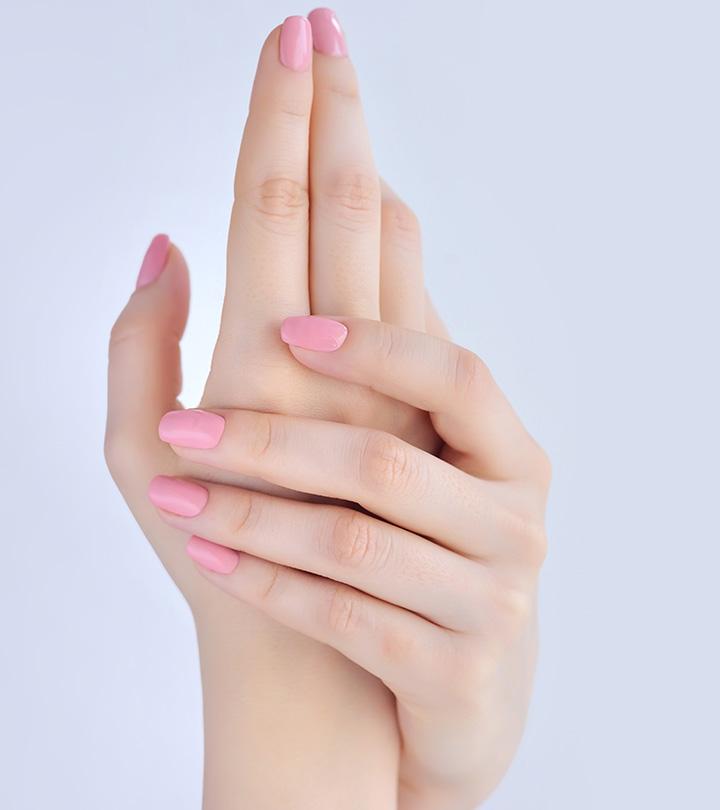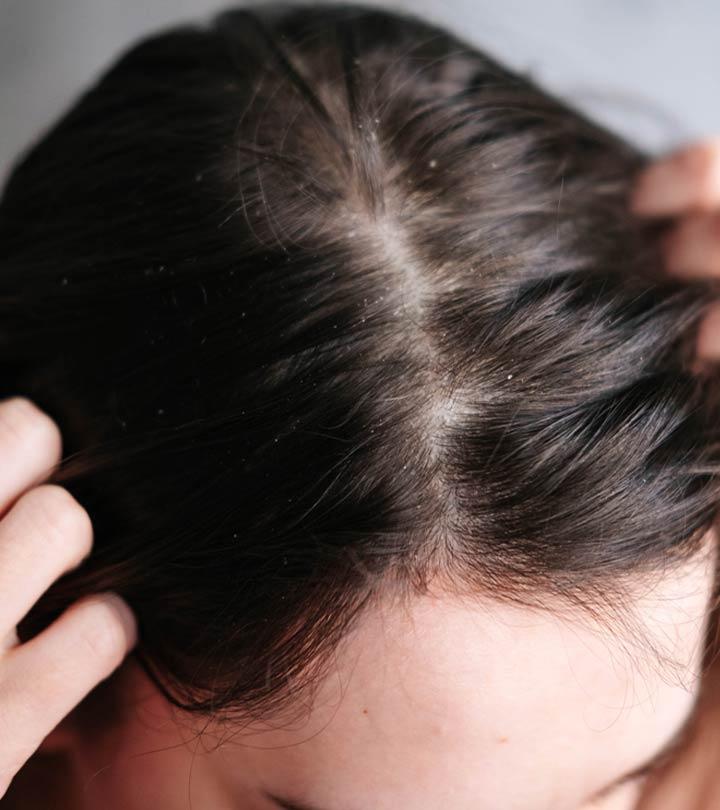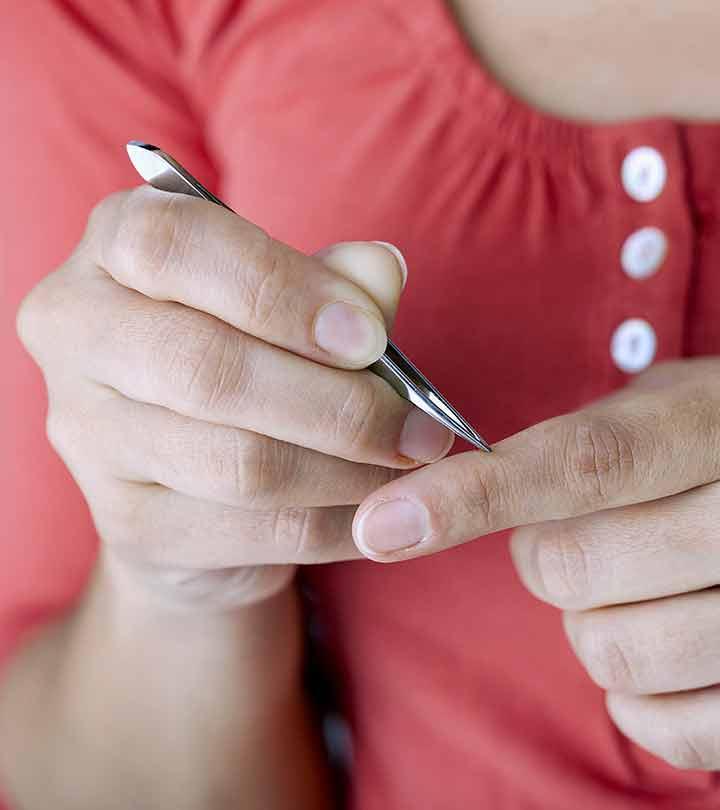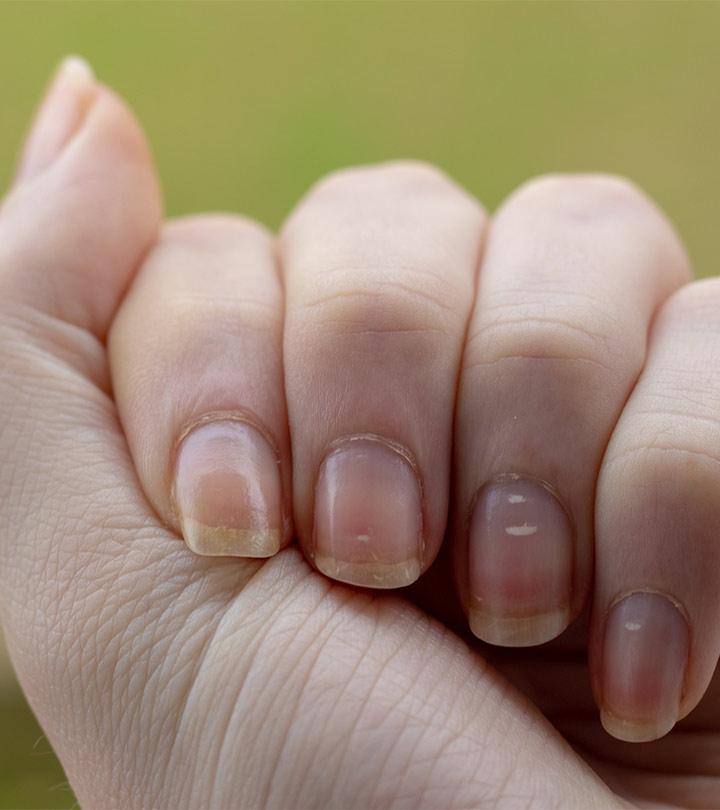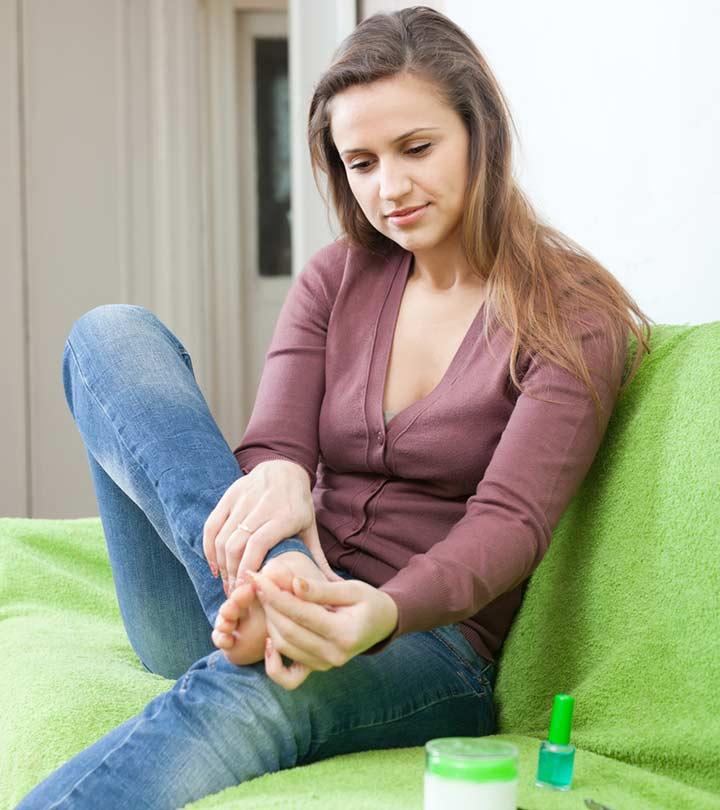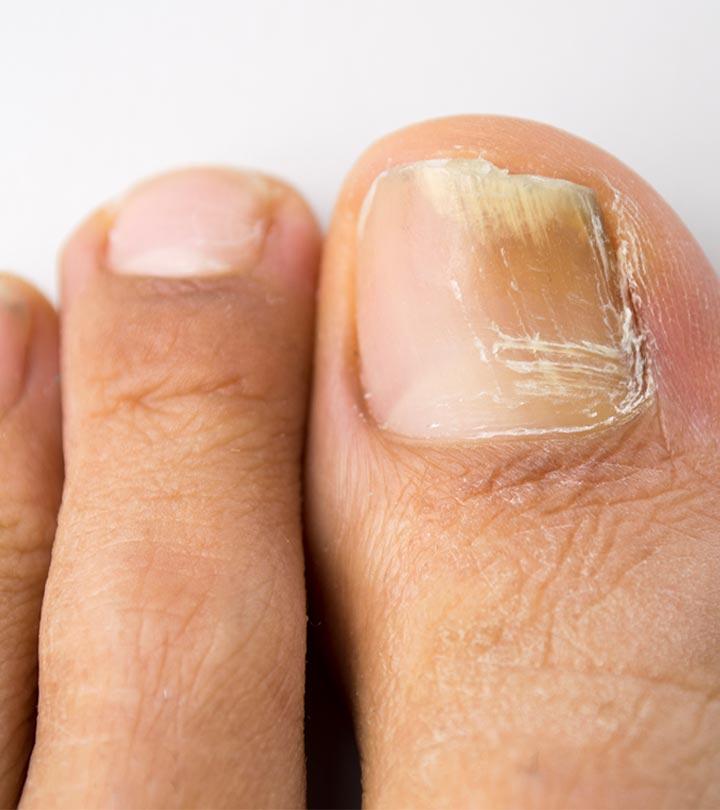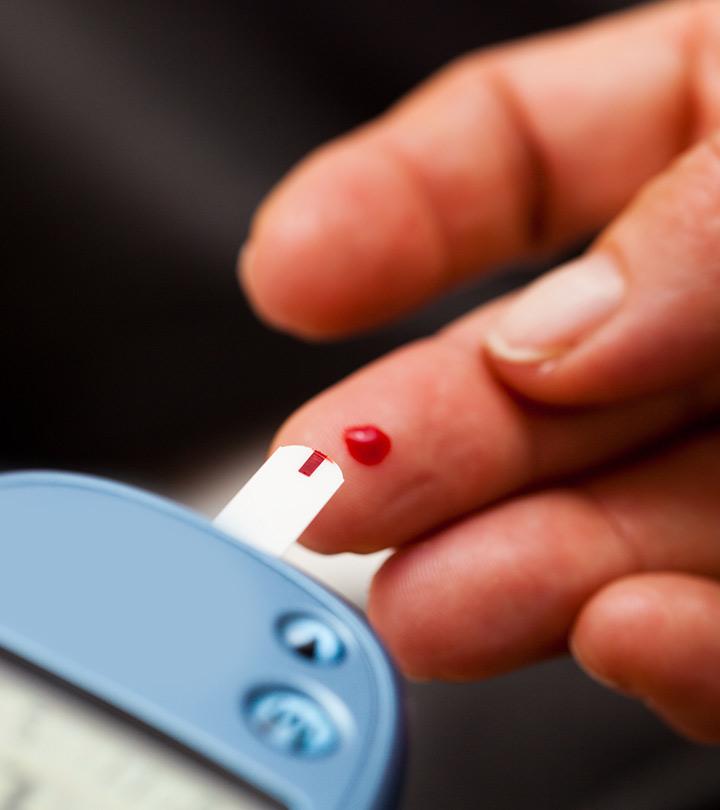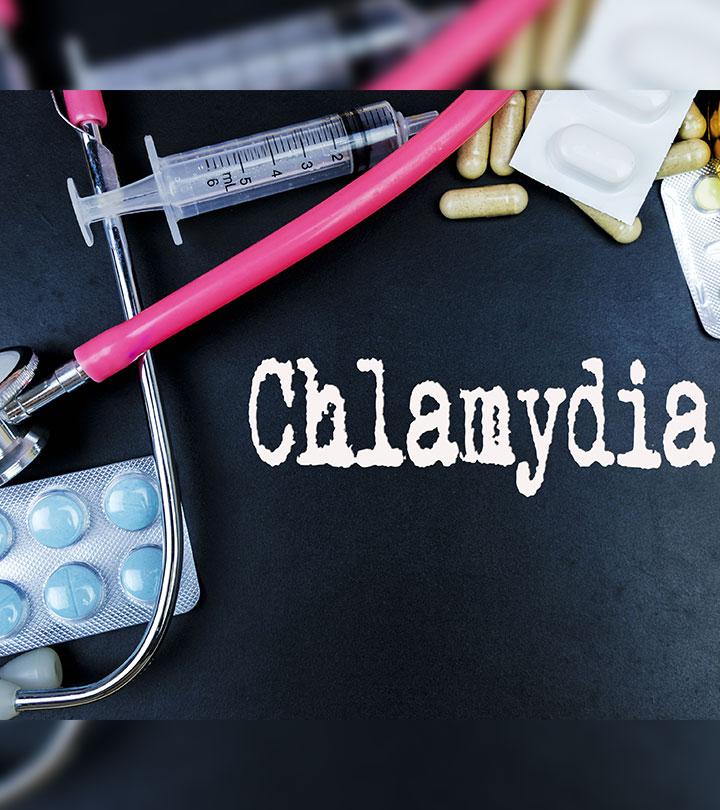8 Natural Remedies For Ear Drainage
Manage the drainage from your ears with simple and affordable ingredients from your pantry.

Image: iStock
Ear drainage or otorrhea causes liquid discharge from the affected ear. Here, we have listed the home remedies for ear drainage. The issue of ear drainage is genuine, and if it is not addressed right away, it may become a constant cause of irritation, pain, and discomfort. This is a prevalent illness that affects people of all ages.
Depending on the type of ear discharge, it may indicate various health problems and underlying conditions. In this article, we will talk about ear discharge, its causes, how to cure it using natural and home remedies, and more. Continue reading to know more about ear drainage.
In This Article
What Is Ear Drainage?
Our ears constantly produce and discharge earwax, an oily substance that prevents foreign objects like dust and bacteria from entering the ear tubes. But when there is other watery or yellow discharge from the ear, like blood or pus, it builds up and clogs the eardrum, resulting in a middle ear infection. Learn more about its common symptoms below.
Symptoms Of Ear Drainage
Symptoms of ear drainage can be indicative of an underlying issue within the ear. This condition is often characterized by the presence of fluid or discharge from the ear canal. The drainage may vary in color, consistency, and odor, and it can be accompanied by several concerning signs (1).
Common symptoms include ear pain, discomfort, or pressure, along with decreased hearing ability. In some cases, individuals may experience dizziness, vertigo, or a ringing sensation in the affected ear, known as tinnitus (1).
Ear drainage can also be associated with fever or other signs of infection (1). It is advisable to promptly consult a healthcare professional if you experience any of these symptoms, as they may signify an ear infection, injury, or other medical conditions that require diagnosis and appropriate treatment to prevent further complications.
Let’s now look at the types of ear discharge.
What Are The Types of Ear Discharge?
- Earwax – Usually present in the ears. When earwax is mixed with water, it turns runny and drains from the ear.
- Pus – Most commonly seen when there is an infection in the ear. When the eardrum is torn, it results in pus.
- Clear Liquid – Usually occurs in children where the ear leaks with clear fluid, but there is no pain. It could happen when they have water build up in their ears from a bath or swimming pool.
- Blood – Blood comes out of the ear when there is an injury to the ear or blow to the head. It can also be noticed when a sharp object is inserted in the ear canal.
- Swimmer’s Ear Discharge – Occurs mainly in swimmers, where they experience a watery discharge from being in the pool for a long time.
Most times, the substance draining from your ears is earwax. But when you have a ruptured eardrum, you could have a watery or bloody discharge from the ear. The presence of dried blood in the ear indicates a ruptured eardrum. A few causes of this are discussed in the next section.
What Are The Causes of Ear Drainage?
- Middle Ear Infection – Also called Otitis Media, this is the most common type of ear infection. It happens when there is a fluid or pus build-up in the eardrum. This is most commonly seen in young children.
- Eczema In The Ear Canal – This is mostly seen in adults or school children. When large amounts of water flow into the ear, the increased moisture content causes eczema in the ear canal. Common signs of this are skin irritation, redness, itching, and pain.
- Injury To The Head – Accidents, falls, or blows to the head or ears can cause a tear in the eardrum or damage the inner ear. This could result in blood clots or severe blood discharge from the affected ear.
- Inserting Foreign Or Sharp Objects Into The Ear – Inserting things like cotton swabs, sharp objects, or fingernails into your ear can tear or rupture the eardrum. This can result in an infection of the ear.
- Swimmer’s Ear – When contaminated water from a swimming pool goes into your ear, it may cause an infection in the outer ear. This could be painful or discomforting for swimmers. The best way to prevent this is to dry and clean the ear immediately after swimming.
Treatment for ear drainage depends on the cause. For mild and acute cases of ear discharge, you can use home remedies that not only help treat the problem but also relieve any discomfort. Listed below are 8 amazing home remedies for ear drainage. Take a look.
8 Natural Remedies For Ear Drainage
1. Apple Cider Vinegar
Apple cider vinegar has antimicrobial properties that help kill the infection-causing microbes in the ear (2).
You Will Need
- 1 teaspoon apple cider vinegar
- 1 teaspoon warm water
- A cotton ball
What You Have To Do
- Mix a teaspoon each of apple cider vinegar and warm water.
- Soak a cotton ball in the solution and insert it into the affected ear, like a plug.
- Lie down on your side and let the cotton ball soak up the discharge for a few minutes. Dry your ears with a hair dryer if needed.
How Often You Need To Do This
You can do this twice a day, once in the morning and once in the evening. Repeat for a few days if required.
 Did You Know?
Did You Know?2. Gravity
Gravitational forces pull out the fluid discharge from the ear when your head is tilted in the downward direction (3). If you have fluid discharge from the ear while sleeping, tilting the ear upwards allows gravity to drain the fluid build-up.
You Will Need
- 1-2 teaspoonfuls of warm water
- A dropper
What You Have To Do
- Use the dropper to squirt a few drops of water into the ear canal.
- Stand near a sink and tilt your head to let the water run out.
- You can also sleep with the infected ear facing the ceiling to experience relief from ear discharge and earache.
How Often You Need To Do This
You can use the water flush 3 to 4 times a day. Sleep as often as needed during the day and at night to get relief from the pain.
3. Neem Oil
Neem oil has antibacterial, antiviral, and antifungal properties (4), (5). These properties help reduce ear ache and destroy the pathogens that cause infection in the ears.
You Will Need
- 1 teaspoon neem oil
- A cotton ball
- A dropper
What You Have To Do
- Pour a few drops of neem oil in the infected ear.
- Cover your ear with a cotton ball and lie down for a few minutes before removing it.
How Often You Need To Do This
You can do this two times a day for a few days.
4. Warm Compress
The warm cloth provides moisture that helps to unclog the ears and loosen the congestion (6). Using this remedy a few times a day helps de-clog the ears.
You Will Need
- 1 small bowl of warm water
- A washcloth
What You Have To Do
Soak the washcloth in warm water, squeeze out the excess water, and hold it on your affected ear.
How Often You Need To Do This
You can do this as often as needed to relieve the discomfort.
5. Garlic
In a study, ear drops containing garlic and other herbal extracts were found to be as effective as OTC ear drops (7). Another study shows that garlic improves the antibiotic sensitivity of certain pathogens to antibiotics. It contains a compound called allicin that works to protect the body against infections (8). Using this remedy helps to battle the microbes in the ear and reduces infection.
You Will Need
- 2 cloves of fresh, raw garlic
- 1-2 tablespoons coconut oil
- A dropper
- A cotton ball
What You Have To Do
- Heat a few cloves of garlic in coconut oil for a few minutes.
- Let this mixture cool.
- Pour a few drops of this mixture into the affected ear with a dropper.
- Lie down for a few minutes and let the oil get absorbed.
- You can also consume raw garlic to reduce earache and infection.
How Often You Need To Do This
You can add a small amount of raw garlic to your dishes until the infection subsides. If you are using garlic oil as a remedy, you can apply it two times a day, once in the morning and once in the evening.
6. Holy Basil
Basil has been traditionally used in Ayurvedic medicine to treat mild infections and pain. A 2017 study shows the effectiveness of basil leaves in treating common health conditions (9). Another study demonstrates the efficacy of instilling basil leaf juice into the ears as a household remedy for earaches (10).
You Will Need
- 10-15 leaves of fresh holy basil or Tulsi
- A cotton ball
- A strainer
What You Have To Do
- Crush a few basil leaves and strain them to get the juice.
- Pour a few drops of this juice into the affected ear and leave it in for a few minutes.
How Often You Need To Do This
You can use basil leaf juice every day to flush out any discharge from your ears or reduce earache.
7. Steam Inhalation
This is a very commonly used method to treat ear drainage and infections. The steam helps unclog the congestion in the ears by loosening the mucus and opening sinus passages (11).
You Will Need
- A pot
- A bowl of water
- 3-4 fresh herbal flowers or Vicks Vaporub
- A towel
What You Need To Do
- Boil the water in the pot.
- Add the herbs or Vicks to the boiling water.
- Cover your head with a towel and inhale the steam from this boiling water.
How Often You Need To Do This
You can do steam inhalation for 10 minutes at a stretch, about 3 to 4 times a day.
8. Onion
Onions have been used very commonly to cure and relieve ear drainage in toddlers and children. This remedy is not backed by a lot of scientific evidence yet, but it has helped parents since the 19th century (12).
You Will Need
1 raw onion
What You Need To Do
- Cut the onion into 2-3 pieces and heat it in the microwave for about 1 minute.
- Crush the onion and extract the juice from it.
- Pour this juice in the affected ear and let it stay for a few minutes.
How Often You Need To Do This
You can do this two times a day and repeat for as many days as required.
These remedies will help relieve ear drainage and the associated pain and discomfort. You can also take certain measures to prevent discharge from your ears and ear infection.
How Can I Prevent Ear Discharge?
- Avoid getting too close to somebody who is already infected to prevent catching the infection.
A study found that there was a notable decrease in adult admissions for ENT (Ear, Nose, and Throat) infections during the 2020-2021 period compared to the previous year (2019-2020), coinciding with the implementation of COVID-19-related physical interventions. The reduction in admissions was significant for various conditions: tonsillitis (57.56% decrease), peritonsillar abscess (64.4% decrease), epiglottitis (60.68% decrease), glandular fever (66.67% decrease), acute otitis media (38.79% decrease), and retropharyngeal and/or parapharyngeal abscesses (26.85% decrease).
These interventions included the use of face masks and social distancing. Thus, implementing similar practices can help you avoid middle ear infections and reduce the risk of developing ear discharge.
- Do not insert sharp or any foreign objects into the ear.
- Use earplugs while swimming to prevent large amounts of water from entering the ears.
- If your ears do get wet, dry them well.
- In the case of toddlers, breastfeeding them helps transfer antibodies from the mother to the child, thus increasing their immunity against infections.
 Quick Tip
Quick TipIn most cases, if you see something out of the ordinary coming out of your ears, try any of the above home remedies and tips for ear cleaning to lessen the discharge. But if home remedies do not work or the ear drainage becomes infected, you should visit a medical professional.
How Do I Test For Ear Drainage?
The medical professional usually diagnoses the infection using an otoscope, a lighted microscope. They may also carry out any of the following tests to be sure of the exact problem:
- Tympanometry – This method tests the movement of the eardrum and the health of the middle ear.
- Acoustic Reflectometry – Although indirect, studies show that this technique is better in finding middle ear effusions as compared to the other tests (13).
- Tympanocentesis – This technique tests to drain the fluid from the middle ear and figure out the infectious agents in the liquid.
In most cases, the ear drainage heals itself and improves within the first few days without treatment. However, if it doesn’t subside, you may have to avail medical intervention.
What Are The Treatment Options for Ear Drainage?
If the ear drainage does not subside, doctors usually prescribe antibiotics, decongestants, nasal sprays, antihistamines, allergy shots, or medicated ear drops to treat the infection and drain the fluid. They may also suggest using a warm compress or painkillers to reduce the pain. In some cases, the doctor may suggest surgery to help drain the liquid out of the ear.
Here’s when you should consult a doctor.
When Should I See A Doctor?
Visit the doctor if you experience any of the following conditions:
- Unbearable pain in the ear
- Swelling or inflammation in the ear
- Fever
- Loss of hearing or ringing in the ears
- Your ear doesn’t stop draining even after a few days or weeks of trying natural remedies.
- Symptoms of a ruptured eardrum continue for 2 months or longer
Adam, a blogger, shares his experience of dealing with a painful ear infection that caused him to take multiple painkillers a day before he consulted an otolaryngologist. He writes, “She drained, cleaned, shoved an ‘ear wick’ down the canal (so topical solution can get down there), and gave me different meds (i).”
Infographic: Top 4 Home Remedies For Ear Drainage
An ear infection or putting sharp objects in your ears might cause ear discharge. While it might not seem like a big concern, it does cause a lot of pain and irritation. If you have ever found yourself in this situation and want to know how to deal with this problem, we have got you covered. Check out the infographic below for the top 4 easy ways to treat ear drainage and bid goodbye to that annoying feeling without any hassle.
Some thing wrong with infographic shortcode. please verify shortcode syntax
Ear drainage can be a sign of underlying conditions depending on what is being discharged from the ear — blood, pus, clear fluid, etc. These underlying conditions could be a middle ear infection, eczema, head injury, or swimmer’s ear. Fortunately, home remedies for ear drainage, be it acute or mild, are effective. Ingredients like apple cider vinegar, neem oil, garlic, and holy basil help combat pathogens in the ear and treat the infection. Warm compress and steam inhalation also treat this condition effectively by decongesting the ear and fighting the bacteria, respectively. Consult a doctor if the ear drainage persists and causes pain, swelling, or fever.
Frequently Asked Questions
How long does ear drainage last?
Usually, any fluid drainage from the ear lasts for up to 24 hours and then starts to recede. In some cases, it might last more than a day or two.
Is it safe to put hydrogen peroxide in the ear?
It is generally not suggested to put hydrogen peroxide in the ears unless a doctor asks you to. Most people use hydrogen peroxide to soften earwax build-up. But using it too often can cause irritation inside the ear, which can also lead to inflammation or earache.
Is ear drainage bad?
Ear drainage is not bad at all. It happens to most people and can usually be cured with natural, at-home remedies.
Can a ruptured eardrum heal itself?
If the ears are protected and covered, a ruptured eardrum can heal itself without treatment in about 1-2 months. But consult a doctor to make sure the consequences are not too serious.
Why do my ears feel wet inside?
Your ears feel wet inside probably because a lot of water has gone inside your ear canal during swimming or a long shower. In some cases, it could also mean that there is an infection inside your ears.
What is the fastest way to dissolve ear wax?
One of the fastest and safest natural ways to dissolve earwax buildup is to lie on the bed and instill a few drops of coconut oil or olive oil into the affected ear. Another good method is to use the ear drops prescribed by your doctor. Ear irrigation, also known as ear syringing, is also a fast way to earwax removal. Though some do ear candling, it is not considered to be a safe technique to remove earwax.
How do you massage the eustachian tube to drain ears?
Press the area behind the ear lobe where it meets the jaw. Slide the finger to the collarbone while maintaining the same pressure. Repeat the process 3–4 times to relieve congestion.
Key Takeaways
- Ear discharge refers to the fluid, pus-like discharge from the ear, commonly caused by an infection or injury.
- Natural ingredients like neem oil and garlic are rich sources of beneficial compounds that can help tackle such infections.
- Drying your ears regularly and wearing appropriate protective gear while swimming may help avoid this condition.

Image: Stable Diffusion/StyleCraze Design Team
Learn about 7 simple remedies that can help relieve ear drainage and treat irritation and pain. Get tips on how to do it naturally and safely by watching this video.
Personal Experience: Source
StyleCraze's articles are interwoven with authentic personal narratives that provide depth and resonance to our content. Below are the sources of the personal accounts referenced in this article.
i. Ear Infection caused by Woodworkinghttps://woodintosawdust.wordpress.com/tag/ear-infection/
References
Articles on StyleCraze are backed by verified information from peer-reviewed and academic research papers, reputed organizations, research institutions, and medical associations to ensure accuracy and relevance. Read our editorial policy to learn more.
- “Otitis Externa” US National Library of Medicine.
- “Vinegar: Medicinal Uses and Antiglycemic Effect” Medscape General Medicine, US National Library of Medicine.
- “Earwax Buildup” Oregon Health & Science University.
- “Antibacterial activity of neem nanoemulsion and its toxicity assessment on human lymphocytes in vitro” International Journal of Nanomedicine.
- “Effect of neem oil on some pathogenic bacteria” Bangladesh Journal of Pharmacology.
- “Perforated Eardrum” Harvard Health Publishing, Harvard Medical School.
- “Efficacy of naturopathic extracts in the management of ear pain associated with acute otitis media.” Archives of pediatrics and adolescent medicine, US National Library of Medicine.
- “Fresh Garlic Extract Enhances the Antimicrobial Activities of Antibiotics on Resistant Strains in Vitro” Jundishapur Journal of Microbiology, US National Library of Medicine.
- “The Clinical Efficacy and Safety of Tulsi in Humans: A Systematic Review of the Literature” Evidence-Based Complementary and Alternative Medicine, Hindawi.
- “Antioxidant Activity of The Ancient Herb, Holy Basil in CCl4-Induced Liver Injury in Rats” Ayurvedic, US National Library of Medicine.
- “Effects of steam inhalation on nasal patency and nasal symptoms in patients with the common cold” American Journal of Otolaryngology, US National Library of Medicine.
- “An onion in your ear” The Journal of Laryngology & Otology, Cambridge University Press.






